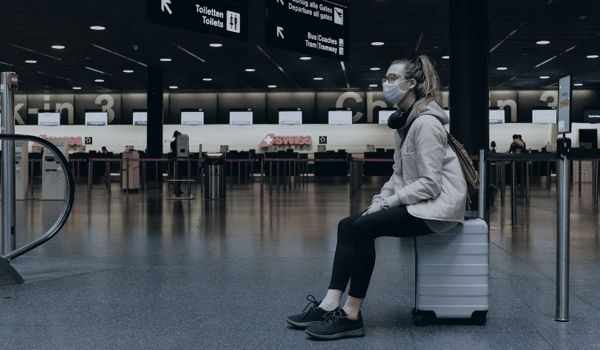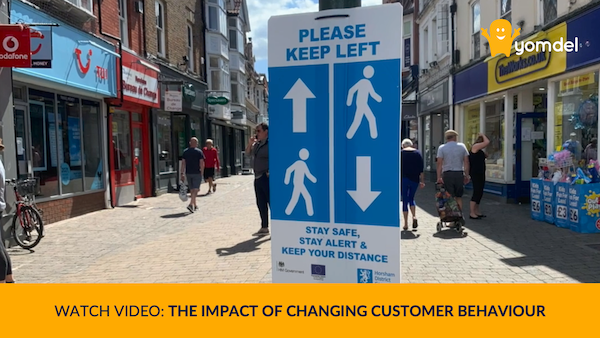Customer Service in Times of Crisis
Things will always go wrong from time to time (hopefully not quite as dramatically as in our recent experience) and making the most of an unexpected situation is key to riding out the bad times and locking in customer loyalty.
So how do you turn a negative into a positive?
The Covid-19 situation got me thinking again, about how important customer service is, particularly in difficult circumstances.
Someone from British Airways once told me that they often got higher customer satisfaction scores and positive brand sentiment when they lost someone’s luggage, than when everything went smoothly. The reason being that they had an opportunity to show off their ‘out of the ordinary’ customer experience by returning the luggage promptly, to the customer’s door with a smile, and possibly a small token of their appreciation for the inconvenience suffered.
The customer is left thinking “Wow! That was efficient” and “I’ll book BA next time just in case something goes wrong”. BA has managed to make customer service mileage from the original error by showing themselves to be operationally agile, efficient and thoughtful to boot. Pretty good result all round.
My experience with a ski travel operator earlier this year (just before lockdown struck) provides another good example of this phenomenon in action. This time, Storm Dennis was the culprit. The third-party airline cancelled the flight two days ahead of the departure date - very sad face.
But the operator immediately contacts me (automated text) to say they’re dealing with it and will advise of the alternative arrangements by a certain time the next day. I then get a punctual, very polite, empathetic call with full details of the alternative arrangement - bus to different airport, new airline specially chartered, arrangements on arrival in resort etc.
Ok, so we ended up arriving late in the evening instead of lunchtime, but I was impressed we made it on the same day as planned at all. And it wasn’t just the big things they got right. They thought about most of the finishing touches too.
The replacement plane was smaller so we couldn’t take large sports equipment with us. They gave us complimentary hire to cover our pre-paid ski carriage costs and make sure we had everything we’d need during the trip. Free drinks and snacks in the plane helped keep the kids happy and the hotel put on late suppers for when we finally arrived. Most importantly, they stationed reps at as many of the locations along the way as possible – all 3 airports concerned at short notice, on the coach transfers, at the hotel.

So what can we learn from these examples? There are a few key things to make sure you’re doing well:
Communication
- Keep your customers informed. Even if you don’t know all the answers yet, make sure they know you’re thinking about them and working on a solution
- Make sure you offer all channels of communication you can, including high quality live chat with empowered/knowledgeable operators
- Make sure your website and social media channels are kept updated as much as possible to limit frustrations and reduce the need to make direct contact
- Use FAQs or other information areas on your website and social to communicate generally applicable news and updates. Again, this reduces the need to make contact directly and overload your phone systems
Empower your Staff
- Give your staff as much decision-making power as you can to enable them to resolve more minor, immediate issues there and then for easy customer wins.
- Make sure your staff are trained in dealing with difficult situations and angry or frustrated customers. Showing empathy and putting yourself in the customer’s shoes can go a long way to resolve tensions and reduce negativity. Mystery shopping and customer journey mapping can help you identify all potential touchpoints and help your staff practise a variety of real-life scenarios
- Establish and reinforce a culture of customer experience throughout your organisation at all times so employees really understand why it’s important and how it contributes to business success
- Measure your employees’ satisfaction and check they feel valued and listened to. Happy employees are much more likely to go the extra mile for you when the proverbial hits the fan
To sum up, I know circumstances are not making travel operators’ lives easy just now, but when life gives you lemons, make lemonade. Or in this case, show your customers how well you assist them in times of need and reap the rewards of that trust when it comes to their next holiday booking time.
If you'd like to know more about mystery shopping your Customer Experience, get in touch with me at Yomdel: gina.mayhead@yomdel.com






